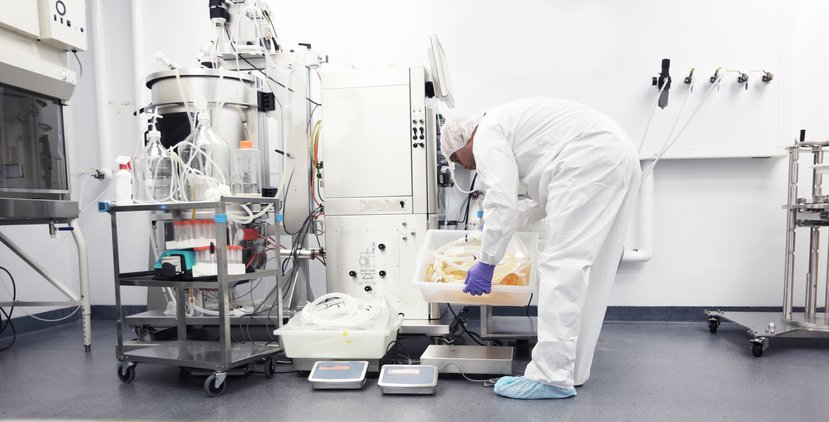Biomanufacturers need to cross-recruit from other industries, upskill, and fight to retain existing employees to meet a looming crunch in the supply of talented workers. That’s the view of Jason Beckwith, PhD, a managing director with Merrill.
According to Beckwith, the biopharma industry got perilously close to having demand for uniquely skilled and experienced workers outstrip supply during the COVID-19 pandemic. Since then, he says, there’s been a hangover in recruiting, but demand could outstrip supply again as early as 2027.
“In 2028, if you picture it on a graph, that’s where demand [for talent] currently outstrips supply in terms of people coming into the biopharma industry not having the skills to meet technological change,” he says.
According to Beckwith, who has developed a mathematical model to measure the flow of talent through the biopharmaceutical industry, one challenge is that university courses in microbiology and mechanical engineering no longer provide the skills required to meet the needs of today’s biomanufacturers.
“If you look at parallel industries, such as fintech, university practice is more aligned with the skillsets needed over the last ten years,” he explains. “Whereas in biopharma, the time needed to be spent on formal or peer training has increased, causing losses in productivity.”
Talent efficiency studies
Beckwith maintains that the study of talent efficiency in biopharma is a valuable but often intangible asset to leaders in biomanufacturing.
“Talent is the impact an employee starts to have on an organization once they’ve achieved mastery, ten years out from their PhD,” he points out. “Their mixture of unique skills and experiences can be shown to affect business performance.”
To overcome this challenge, he advises organizations to focus on the traditional employee trio of recruitment, retention, and upskilling. “We’re working with the National Institute for Bioprocessing Research and Training (NIBRT) in Dublin and University College London (UCL) to map the skills the industry needs for the future.”
Companies can also bring in a talent practitioner to understand the needs of their organization, including whether they should, for example, aim to hire from outside biotech. For example, the automotive industry has had automation for a decade. It’s also essential to ensure pay rates are comparable to avoid losing talent elsewhere.
“You need to look at compensation parity, incentives to promote the right people in the right roles, and the specific training to usher in a new era,” he adds.
The post Biomanufacturing Industry to Face a ”Talent Singularity” in 2028 appeared first on GEN – Genetic Engineering and Biotechnology News.




